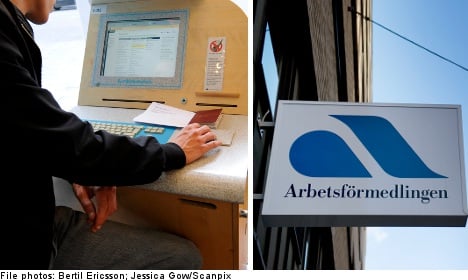According to new labour statistics, 13 percent of women born outside Europe are long-term unemployed in Sweden, compared to just 1.3 percent of women born in Sweden, and 9.2 percent of men born outside Europe.
“All children should get to see their mother go to work,” labour and integration minister Johan Pehrson said in a press statement. “Today there are far too many women born outside Europe who do not have a job to go to. That’s why the government is reforming labour market and integration policy so that more get into work and contribute to our common life.”
As part of this, the government has ordered an inquiry launched by the previous Social Democrat government into “improved integration into the labour market for women born abroad” to take a broader look at integrating.
The supplementary directive requires Marika Lindgren Åsbrink, the Social Democrat politician leading the inquiry, to look at “more clearly including social, cultural, economic, linguistic and democratic integration and adaption”, and include these elements in her final report, which is due on May 31st next year.
“They have it tougher than anyone,” Pehrson said of women born outside Europe. “We are going to strengthen the goal structure of integration policy, and look at it more broadly, so we know the reason why this group finds it so hard.”
The focus on utomeuropeiskt födda (born outside of Europe) is new in Sweden, where statistics have tended to be broken down into utrikesfödda (born abroad) and inrikesfödda (born in Sweden).
In Denmark, integration policy has focused heavily on ikke–vestlige (non-Western) immigrants, and MENAP-indvandrere (immigrants from Middle East, North Africa, Pakistan), or sometimes MENAPT, including Turkey.
At the press conference, Pehrson showed how the last government had failed to reduce long-term unemployment in Sweden, leading to the unemployment rate in the country to go from one of the lowest in the European Union to one of the highest.
“We have not succeeded in pushing down the long term unemployment rate, despite times being good,” he said.
He said that the government now planned to reform benefits and labour policy to make sure that unemployed people are more incentivised to get a job, with a stricter “activity requirement” to ensure that those receiving benefits are either spending their time studying, doing volunteer work, or looking for jobs.
“We are going to strengthen apprentice schemes,” Pehrson added.
The government also plans to increase education schemes, language schemes and so-called ‘establishment jobs’, a new scheme where employers only need to pay a salary of as low as 8,400 kronor a month, with the government then paying a supplementary benefit of 9,870 kronor a month.



 Please whitelist us to continue reading.
Please whitelist us to continue reading.
Wouldn’t the total salary of the “establishment jobs” (18,270kr) be lower than the minimum salary SD is also proposing for immigrants (~33,000kr)? Isn’t that inconsistent messaging, or am I not understanding something?